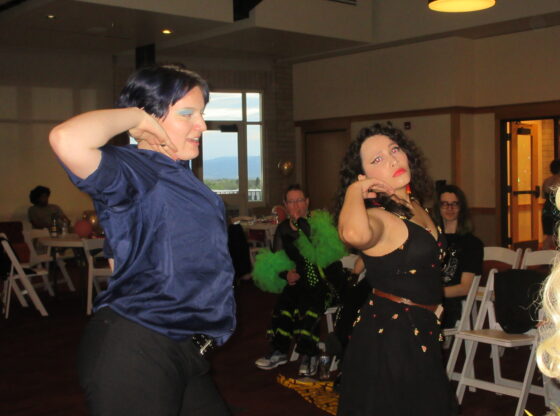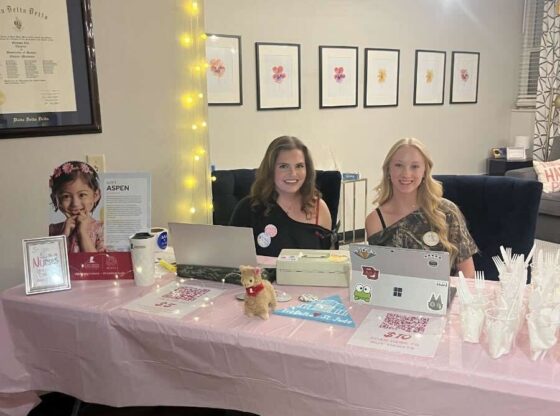In an average week, the University of Denver hosts a flurry of events, each through different programs, sponsors and departments. Organized and hosted by the Thrive Program at DU partnering with Sodexo, the Mindful Mile took place last Tuesday, Sept. 24.
For the event, DU partnered with CADE (The Colorado Coalition of Campus Alcohol and Drug Educators) to run a Time To Ungrind campaign. The campaign strives to fight hustle culture by encouraging students to prioritize their personal well-being.
The Mindful Mile consisted of stations set up on a loop throughout campus. At each checkpoint, students were met with free prizes and unique information on mental health resources offered at DU. Upon completing the journey at their own pace, students were rewarded with a coupon for Starbucks or Natural.
DU is not alone in focusing its attention on the mental well-being of its students. In 2023, the American Council on Education found through a national survey that there has been a steady increase in students who report “high levels of distress.” From 2016 to 2021, there was a 16 percent increase (25%-41%) in “students with significant symptoms of depression” and a 13 percent increase (21%-34%) for anxiety.
Many colleges’ first response was to increase the ease and access to mental health care. However, due to disparity challenges, the American Council on Education found that many universities have sought “a more proactive, preventive approach.”
Time Magazine reported, “Colleges have long offered on-campus health and counseling centers, but demand for mental-health support is surging such that many schools can’t meet it through traditional means.” Due to staff shortages, “colleges and universities across the U.S. are leaning on faculty, staff, and even students to help bridge the gap.”
This is where members of the Thrive Program at DU, like Kelsey Compton, come in.
Compton was one of the organizers of the recent Mindful Mile, which she believes had a sizable impact on both students and faculty. She stated that the Mindful Mile was a “casual, fun experience” that she believes “was helpful for DU students’ stress and anxiety levels.”
Compton values the Mindful Mile for its ability to “let each person take on the loop in their own way,” as it allows busy students and faculty to “just take a moment to do something fun.”
“The weather was nice, and the people participating seemed to be having a great time, which was great to see,” she said.
When asked about Mindful Miles’ turnout, Compton replied, “I think the turnout was really good. There were mostly students, but there was also a good amount of faculty, too.” She also noted that the Mindful Mile “was area specific, so people near locations were more likely to get involved.”
“Students are always on that academic path … because of that, I think it can be really hard to find that balance. But that’s entirely what our office does,” she said.
Compton’s office hosts many different events, though all have a significant emphasis on skill learning.
“They all really have the same goal, which is we’re looking for opportunities to give students that chance to take some time for themselves, to practice mindfulness, to practice stress management,” she said. “We know students can’t be at our events every time they happen, but we want them to be able to take their learned skills into their own time and spaces.”
The University of Denver lists many of these programs and events on its Health and Counseling Center website.











